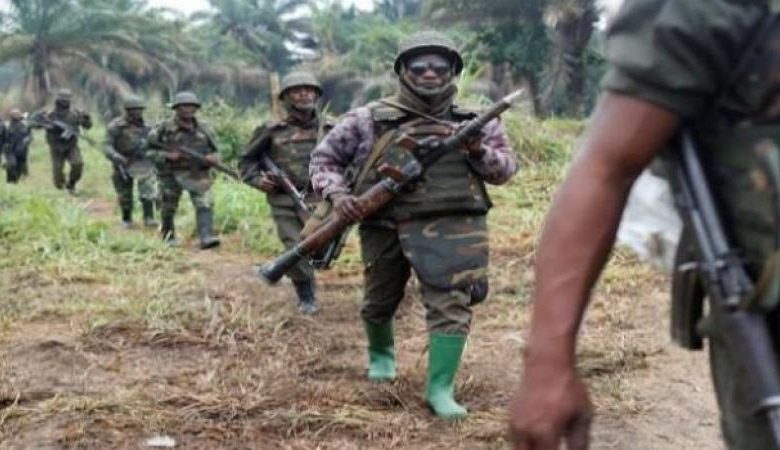10 Rebels, 3 Soldiers Killed In Clashes In Ituri, DR Congo
The CODECO rebels in their recent attacks also burned down a hospital providing emergency health services.

Ten combatants of the Cooperative for the Development of Congo (CODECO) rebel movement and three soldiers of the DR Congo national army, FARDC, were killed during clashes between the two sides in Liseyi and Itendeyi zones of the Ituri province.
The clashes on Tuesday, Aug. 17 were occasioned by a retaliatory raid by the Congolese national army on CODECO positions following the burning down of the Kilo Reference Hospital situated in Itendeyi, located in the Banyali-Kilo sector of Djugu territory by CODECO fighters on Tuesday.
“The FARDC neutralised 10 militias of CODECO and wounded several in the Liseyi and Itendeyi zones,” said Lt. Jules Ngongo, spokesperson of the army in the Ituri operational sector.
“That was rendered possible during a counter attack by the army which permitted the dislodgement of the enemy and the control of all these localities. Three elements of the FARDC spilled their blood for the restoration of state authority.”
The army spokesperson added that “Army helicopters supported the elements on the ground with fire on Gutsi and Liseyi, zones where these enemies retreated to after their defeat in Itendeyi.”
The Itendeyi hospital which usually receives a large number of patients from different villages in Djugu territory was totally burnt down by CODECO rebels two days ago. All medical materials and drugs were destroyed by the rebel militias.
The populations have since fled following the attack on Itendeyi and taken refuge in the mineral site of Mungbwalu.
In a report on Wednesday, Aug. 18, the United Nations Office for the Coordination of Humanitarian Affairs (UNOCHA) painted a bleak picture of the humanitarian situation in Ituri following the increasing violence in spite of the state of siege in vigour in Ituri and North Kivu provinces.
Over 1.7 million persons have been internally displaced, 14 per cent of whom are housed on special sites and 86 per cent housed by host families in the territories of Djugu, Irumu, Mahagi, Mambasa and Aru, the UNOCHA revealed.
Support Our Journalism
There are millions of ordinary people affected by conflict in Africa whose stories are missing in the mainstream media. HumAngle is determined to tell those challenging and under-reported stories, hoping that the people impacted by these conflicts will find the safety and security they deserve.
To ensure that we continue to provide public service coverage, we have a small favour to ask you. We want you to be part of our journalistic endeavour by contributing a token to us.
Your donation will further promote a robust, free, and independent media.
Donate HereStay Closer To The Stories That Matter




